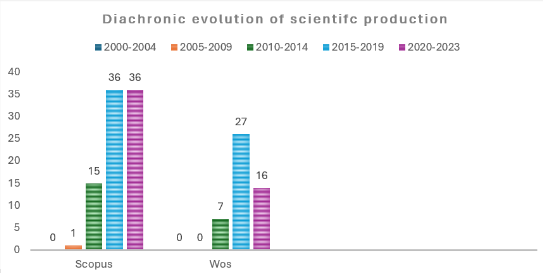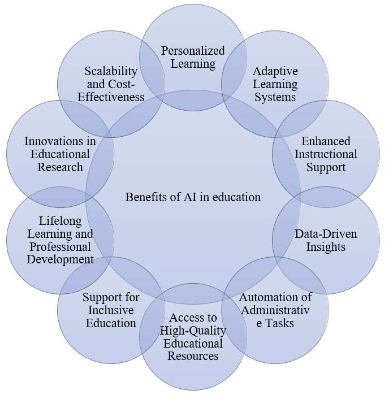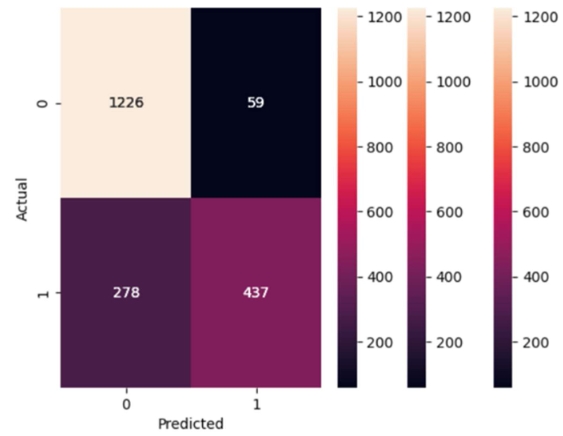Giftedness in the picture: what do teachers believe is needed for gifted students to become and maintain engaged for learning at school?
Abstract
Teachers often experience uncertainty regarding their learning support of gifted students, who can show strong task involvement but by no means self-evidently demonstrate engagement with school-task learning. Through inductive and deductive analyses of in-depth interviews with eight teachers, this study explores teachers’ understandings of the needs of gifted children in becoming and maintaining engaged with school learning as well as their own roles in this process. Teachers identify student- and context-related factors that matter for engagement. They describe substantial differences between students in what it takes to become and maintain engaged. For all students, becoming engaged seems to require an autonomy-supportive environment, while the provision of structure appears essential for them to maintain engaged. It is an ongoing challenge for teachers to find the best possible and fair balance between supporting autonomy and providing structure. It requires vigilance and constant monitoring to make it tailored to the child’s educational needs.
References
[1]Appleton JJ, Christenson SL, Furlong MJ. Student engagement with school: Critical conceptual and methodological issues of the construct. Psychology in the Schools. 2008; 45(5): 369-386. doi: 10.1002/pits.20303
[2]Baarda B. This is research! (Dutch). Noordhoff Uitgevers; 2014.
[3]Biesta G. World-Centred Education. Routledge; 2021.
[4]Castenmiller K. The situation of school age dropouts unfairly underemphasised (Dutch). Onderwijscommunity; 2021.
[5]Chen B, Van Assche J, Vansteenkiste M, et al. Does Psychological Need Satisfaction Matter When Environmental or Financial Safety are at Risk? Journal of Happiness Studies. 2014; 16(3): 745-766. doi: 10.1007/s10902-014-9532-5
[6]De Boer GC, Opdenakker MJL, Minnaert AEMG. Teacher strategies to motivate gifted students: A multiple case study on teacher behavior. In: Gabrijelčič MK, Željeznov MS (editors). Teaching gifted and talented children in a new educational era. University of Primorska; 2018. pp. 75-98.
[7]Deci EL, Ryan RM. The “what” and the “why” of goal pursuits: Human needs and the self-determination of behavior. Psychological Inquiry. 2000; 11(4): 227-268. doi: 10.1207/S15327965PLI1104_01
[8]Deci EL, Ryan RM. Handbook of self-determination research. University of Rochester Press; 2002.
[9]Deci EL, La Guardia JG, Moller AC, et al. On the Benefits of Giving as Well as Receiving Autonomy Support: Mutuality in Close Friendships. Personality and Social Psychology Bulletin. 2006; 32(3): 313-327. doi: 10.1177/0146167205282148
[10]Deng S. Comparing Students’ Engagement in Classroom Education Between China and Germany. Frontiers in Psychology. 2021; 12. doi: 10.3389/fpsyg.2021.754637
[11]Hébert C. Knowing and/or experiencing: a critical examination of the reflective models of John Dewey and Donald Schön. Reflective Practice. 2015; 16(3): 361-371. doi: 10.1080/14623943.2015.1023281
[12]Kelchtermans G. Cherished vulnerability as a professional virtue. Narrative reflections on good teaching (Dutch). Centrum voor Onderwijsbeleid en vernieuwing. K.U. Leuven; 2009.
[13]Kuipers J. Underperforming (Dutch). In: Handboek hoogbegaafdheid. Van Gorcum; 2009. pp. 166-186.
[14]Lavrijsen J, Verschueren K. Engagement and motivation of cognitively strong students: initial results from the TALENT study (Dutch). Leuven; 2018.
[15]Loopers J, Kupers E, de Boer A, et al. The relationship between basic psychological need satisfaction and intrinsic motivation: The role of individual differences and special educational needs. European Journal of Psychology of Education. 2023; 39(1): 341-360. doi: 10.1007/s10212-023-00683-8
[16]Minnaert AEMG. Does it make a difference? On educational and special needs care of pupils in education (Dutch). In: Verschillen onderscheiden. Orthopedagogische hulpverlening en begeleiding bij problematische opvoedings- en onderwijsleersituaties. Agiel; 2005. pp. 43-62.
[17]Minnaert A, Odenthal L. Motivation is a verb (Dutch). CPS Uitgeverij; 2018.
[18]Minnaert A. Thinking and acting from possibilities, yes, but don’t forget our twice exceptional voice (Dutch). In: Proceedings of the Keynote lecture presented at the ECHA 2022 congress, World Forum; 2 September 2022; The Hague, The Netherlands.
[19]Mönks FJ. General introduction: From conception to realization. In: Mönks FJ, Katzko MW, Van Boxtel HW (editors). Education of the gifted in Europe; Theoretical and research issues. Swets & Zeitlinger; 1992. pp. 13-21.
[20]Mooij T. Education and self‐regulation of learning for gifted pupils: systemic design and development. Research Papers in Education. 2008; 23(1): 1-19. doi: 10.1080/02671520701692551
[21]Nalipay MJN, King RB, Cai Y. Autonomy is equally important across East and West: Testing the cross‐cultural universality of self‐determination theory. Journal of Adolescence. 2019; 78(1): 67-72. doi: 10.1016/j.adolescence.2019.12.009
[22]Reeve J, Jang H, Carrell D, et al. Enhancing students’ engagement by increasing teachers’ autonomy support. Motivation and Emotion. 2004; 28(2): 147-169. doi: 10.1023/B:MOEM.0000032312.95499.6f
[23]Renzulli JS. What makes giftedness? Reexamining a definition. Phi Delta Kappan. 1978; 60(3): 180-184.
[24]Reschly A, Christenson SL. Promoting successful school completion. In: Bear G, Minke K. (editors). Children’s needs-III: Development, prevention, and intervention. Bethesda, MD: National Association of School Psychologists; 2006. pp. 103-113.
[25]Reschly A, Christenson SL. Research leading to a predictive model of dropout and completion among students with mild disabilities and the role of student engagement. Remedial and Special Education. 2006; 27: 276-292. doi: 10.1177/07419325060270050301
[26]Russell VJ, Ainley M, Frydenberg E. Student motivation and engagement. Schooling Issues Digest. 2005; 2: 1-16.
[27]Ryan RM, Deci EL. Self-Determination Theory: Basic Psychological Needs in Motivation, Development, and Wellness. Guilford Publications; 2017.
[28]Fredricks, J. A., Blumenfeld, P. C., & Paris, A. H. School Engagement: Potential of the Concept, State of the Evidence. Review of Educational Research. 2004, 74(1): 59–109. doi: 10.3102/00346543074001059
[29]Ryan RM, Deci EL. Self-determination theory and the facilitation of intrinsic motivation, social development, and well-being. American Psychologist. 2000; 55(1): 68-78. doi: 10.1037/0003-066x.55.1.68
[30]Ryan RM, Deci EL, Vansteenkiste M. Autonomy and Autonomy Disturbances in Self‐Development and Psychopathology: Research on Motivation, Attachment, and Clinical Process. Developmental Psychopathology. Psychology; 2016.
[31]Sajedifard M, Shahgoli N. A Neglected Practice in Iran: EFL Teachers’ Differentiation for Gifted Students in Rural Schools. Journal for the Education of the Gifted. 2020; 43(3): 270-290. doi: 10.1177/0162353220932998
[32]Sheldon KM, Elliot AJ, Kim Y, et al. What is satisfying about satisfying events? Testing 10 candidate psychological needs. Journal of Personality and Social Psychology. 2001; 80(2): 325-339. doi: 10.1037/0022-3514.80.2.325
[33]Sinclair MF, Christenson SL, Thurlow ML. Promoting School Completion of Urban Secondary Youth with Emotional or Behavioral Disabilities. Exceptional Children. 2005; 71(4): 465-482. doi: 10.1177/001440290507100405
[34]Snikkers S. Working towards meaningful Waldorf education for now and the future (Dutch). Hogeschool Leiden; 2022. pp.79-88.
[35]Snikkers-Mommer S, Hoekman J, Mayo A, et al. Triggered and maintained engagement with learning among gifted children in primary education. Frontiers in Education. 2024; 9. doi: 10.3389/feduc.2024.1164498
[36]Snikkers-Mommer S, Mayo A, Minnaert A. (2024). Pedagogical encounters and giftedness: Foundations for customisation and engagement (Dutch). Tijdschrift voor Orthopedagogiek. 2024; 63(4): 40-49.
[37]Snikkers-Mommer S. The power of engagement unfolded. Gifted students and their educational stakeholders voicing about engagement with learning at school (Dutch) [PhD thesis]. University of Groningen; 2025.
[38]Soemer A, Idsardi HM, Minnaert A, et al. Mind wandering and reading comprehension in secondary school children. Learning and Individual Differences. 2019; 75: 101778. doi: 10.1016/j.lindif.2019.101778
[39]Steenberghs N, Lavrijsen J, Soenens B, et al. Peer Effects on Engagement and Disengagement: Differential Contributions From Friends, Popular Peers, and the Entire Class. Frontiers in Psychology. 2021; 12. doi: 10.3389/fpsyg.2021.726815
[40]Vansteenkiste M, Ryan RM. On psychological growth and vulnerability: Basic psychological need satisfaction and need frustration as a unifying principle. Journal of Psychotherapy Integration. 2013; 23(3): 263-280. doi: 10.1037/a0032359
[41]van Manen M. The tact of teaching. The meaning of pedagogical thoughtfulness. Routledge; 2015.
[42]Vansteenkiste M, Soenens B. Vitamins for psychological growth: a self-determination theory perspective on child development (Dutch). Acco Leuven; 2015.
[43]Ziegler A, Heller KA. Conceptions of Giftedness from a Meta-Theoretical Perspective. International Handbook of Giftedness and Talent. Published online 2000: 3-21. doi: 10.1016/b978-008043796-5/50002-4
Copyright (c) 2025 Author(s)

This work is licensed under a Creative Commons Attribution 4.0 International License.









